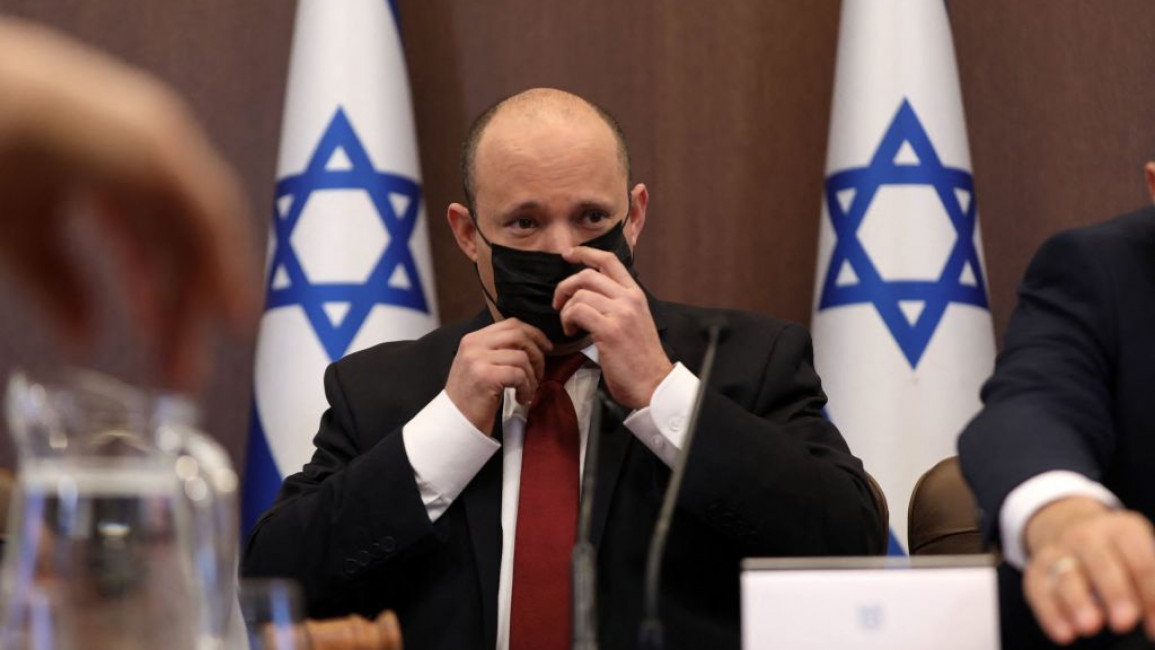Israeli PM Bennett to make first-ever visit to Bahrain
Israeli Prime Minister Naftali Bennett is set to fly to Bahrain on Monday for the first-ever official visit by an Israeli head of government to the Gulf state.
Bennett's visit is the latest following the US-brokered 2020 Abraham Accords, the normalisation deals, which were slammed by Palestinians as a betrayal of their cause.
The Israeli premier was scheduled to meet Bahraini Crown Prince and Prime Minister Salman bin Hamad al-Khalifa as well as other top officials, and representatives of Bahrain's Jewish community, his office said.
The trip followed a visit to Manama by Israeli Defence Minister Benny Gantz earlier this month that saw the two countries sign a defence agreement.
The deal covered intelligence, procurement and joint training, with Gantz boasting that it further solidified the nascent diplomatic relationship.
Bahrain and its close ally the United Arab Emirates became only the third and fourth majority Arab states -- following Egypt and Jordan -- to establish ties with Israel when they signed on to the pacts negotiated under former US president Donald Trump.
Focus on Iran
The visit also comes at a time of regional tensions over Iran's nuclear programme.
Iran has been engaged in negotiations with Britain, China, France, Germany and Russia directly and with the United States indirectly to revive the deal formally called the Joint Comprehensive Plan of Action.
The deal offered Tehran sanctions relief in exchange for curbs on its nuclear programme. The US unilaterally withdrew from the JCPOA in 2018 under Trump. The drive to salvage it resumed in late November.
Bennett's government strongly opposes a return to the 2015 agreement, repeatedly warning that offering Tehran sanctions relief will lead to increased revenue that Iran will use to buy weapons for use against Israelis.
Yoel Guzansky, a senior researcher at the Institute for National Security Studies in Tel Aviv, said Bennett's trip is "absolutely" about Iran.
"In light of the talks in Vienna it is a show of force, symbolism, that the countries are working together," he said.
Dore Gold, head of the Jerusalem Centre for Public Affairs, said Israel and Bahrain have been pushed towards closer ties as both are "under threat by Iranian actions".
Bahrain, a Shia majority country ruled by a Sunni monarchy, has often accused Iran of meddling in its affairs. The island state, which quashed an uprising led mostly by Shia members of its population in 2011, saw some sporadic acts of protest after the Abraham Accords were signed.
As part of their defence agreements, Israel is set to post a naval official in Bahrain, which hosts a base for the US Navy's Fifth Fleet.
Guzansky said that in several respects Bahrain has been perceived as moving slower than the UAE in terms of solidifying ties with Israel.
But, he added, allowing an Israeli military officer to be based there was "significant," while noting that Bahrain "does not want to be seen as an Israeli base in the Gulf."



